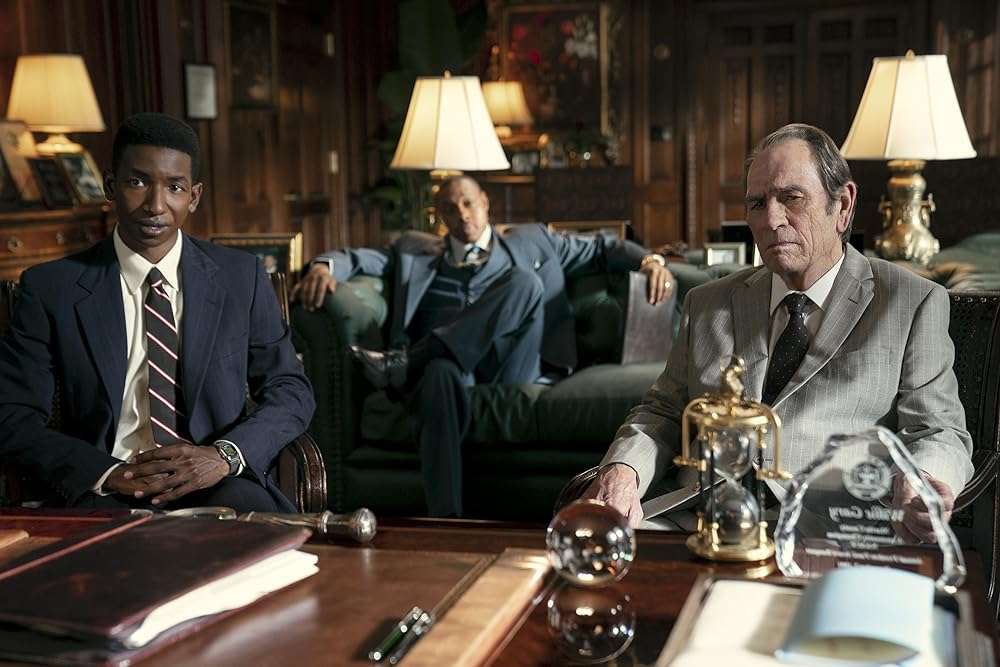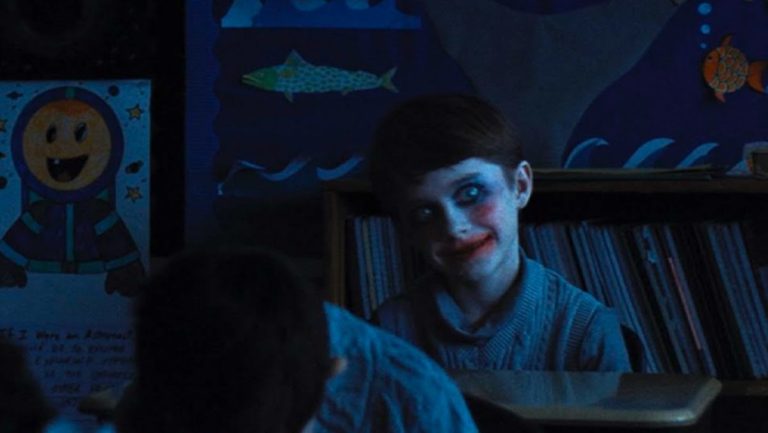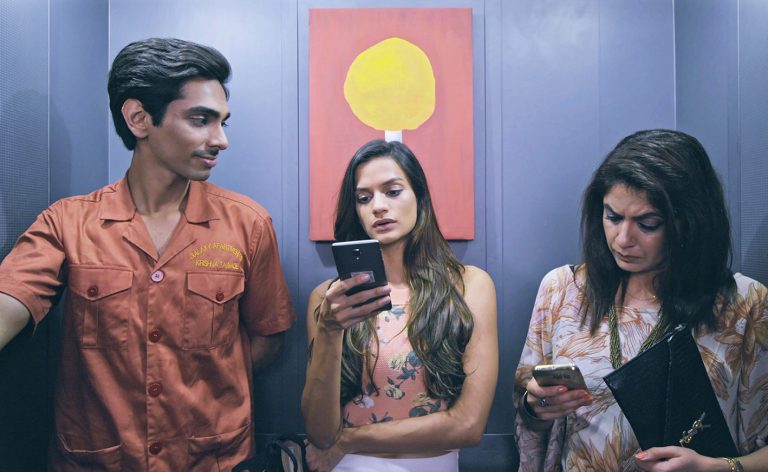In many recent films and TV shows, you will find a recurring theme of an outcry against the capitalistic oppressors. Such works try to criticize, examine, or understand these uber-rich folks. While Apple TV+’s The Morning Show presents an unapologetic tech billionaire, Dumb Money conveys the power of the masses getting undermined by the wealthy bunch. ‘The Burial’ walks on a similar thread. It follows the story of a man fighting against a devious, remorseless businessman. Unlike other works, it puts the points across quite dramatically and bluntly.
This Prime Video release is loosely based on the true story of lawyer Willie E. Gary (played by Jamie Foxx) fighting for his client Jeremiah Joseph O’Keefe (played by Tommy Lee Jones) against an encroaching funeral company. The legal drama largely shows the trials from this lawsuit, as documented by Jonathan Harr in his New Yorker article. From the logline, anyone can easily name a bunch of similar big businesses that try to kill small businesses in one or the other way. They use several tactics to intimidate the less fortunate while showing no regard for their existence or well-being.
The Burial tackles the aspects of racial and financial privilege to address the same issue. O’Keefe, who owned a small business of post-death needs, experienced the threat of eradication by a smug, giant business owner. As stated in the film, Raymond Loewen used power-showcase tricks to make O’Keefe feel insignificant and leave him with no alternative besides doing business with him. We empathize with O’Keefe’s struggle because of our stance against the bullying tactics used by despicable, apathetic villains around us.

Structurally, the film is led out like an underdog tale winning over the immoral antagonist. There is nothing redeeming about Loewen and almost nothing bad to say about O’Keefe. The script paints the picture in a rather straightforward good-vs-evil slate. O’Keefe is a white business owner from Minnesota who stood against terrorist organizations like the KKK and fought a long and hard battle against the powerful. O’Keefe’s attorney, Willie E. Gary, was a personal injury lawyer with skillful showmanship that may remind some of Saul Goodman.
But unlike that fictional opportunistic hustler, Gary uses his dramatized approach in more charitable ways. When a small-time businessman such as O’Keefe approaches him, he contemplates the aspect of money. Yet, he reconsiders his decision based on the nationwide popularity the case will bring him. Both these characters represent the folks one aspires to be. So, the uncritical characterization does not seem that wrong.
During the courtroom trial proceedings, the aspect of race inevitably comes into the picture. Some parties use it just to plainly benefit from representation, while others decide to use it to gain the voice for the voiceless. While a few introspect their part in the systemic racism, others unashamedly take benefit of it. In the middle of this, Gary emerges as a savior for O’Keefe to make him realize his true worth. He engrains the confidence he earned from his years of experience. Foxx presents this lawyer with his natural charm that we all have grown to love. Despite the apparent loudness of his reactions, the actor understands the depth of their emotions and presents them superbly. That genuineness rises above the minor qualms one may have about the film’s formulaic structure or otherwise limitations.
It is devastating to witness the powerful bunch disregarding others for personal gain. But the film’s heavy reliance on the theatrics limits some of its moments to make a visceral impact. We feel it because we feel for the plight of these people and not because the direction is impactful. At times, it hammers its points instead of presenting or integrating them in its dialogues or behavioral cues. So, such moments pale in comparison to some other grounded, personal moments between the characters, e.g., when O’Keefe pays a casual visit to Gray to hear about the lives they have led. That is where the film truly shines.
Foxx has a knack for switching from intense to subdued, which is cleverly used in the film. Besides that, I loved how Jurnee Smollett’s character was never sexualized or shown as a romantic interest, which films often resort to doing. Smollett makes her character’s presence felt through her neat performance. Besides, Alan Ruck is impressive in his role as O’Keefe’s formal lawyer. He has mastered the art of playing an immature man. We see him expertly present Allred’s biases, insecurities, and feigned confidence.




![Simulation (Tamaroz) [2017]: ‘TIFF’ Review](https://79468c92.delivery.rocketcdn.me/wp-content/uploads/2017/09/simulation_03_highonfilms-768x384.jpg)



